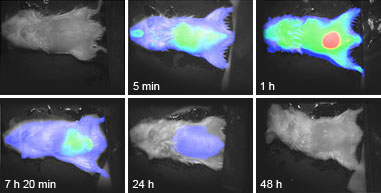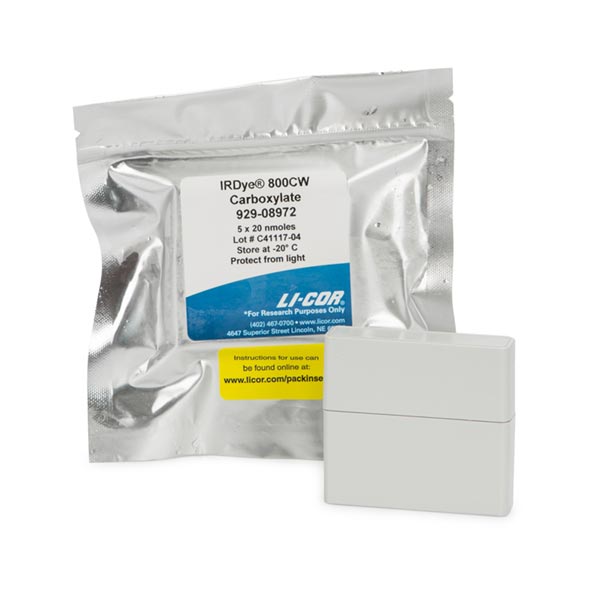Assays that use IRDye 800CW conjugates (such as in vivo imaging and cell binding assays) may require a "dye-only" control for potential effects or retention of the dye.
Carboxylate (non-reactive) form of IRDye 800CW is an ideal control.
Note: The carboxylate dye has no reactive group and cannot be used for labeling.

How is IRDye 800CW Carboxylate Used?
In vitro Cell-based Assays
As a control for cell-based assays that monitor binding of a dye-labeled agent.
- Validation of optical agents for in vivo administration
- Evaluation of binding specificity
In vivo Imaging
For evaluation of behavior and clearance of the dye itself.
- Timing of dye clearance from the animal's body
- Retention of dye in certain organs or sites (e.g., liver or kidneys)
Labeling Reaction Reference
As a standard to determine the amount of unreacted ("free") dye after IRDye 800CW conjugation and purification.
Residual unreacted dye may cause:
- Artificially high values when dye/protein (D/P) ratio is calculated
- Increased background fluorescence in biological assays
Dye Structure

Properties
- Chemical Formula: C46H50N2Na4O15S4
- Molecular Weight: 1091.10 g/mol
- Exact Mass: 1090.17
